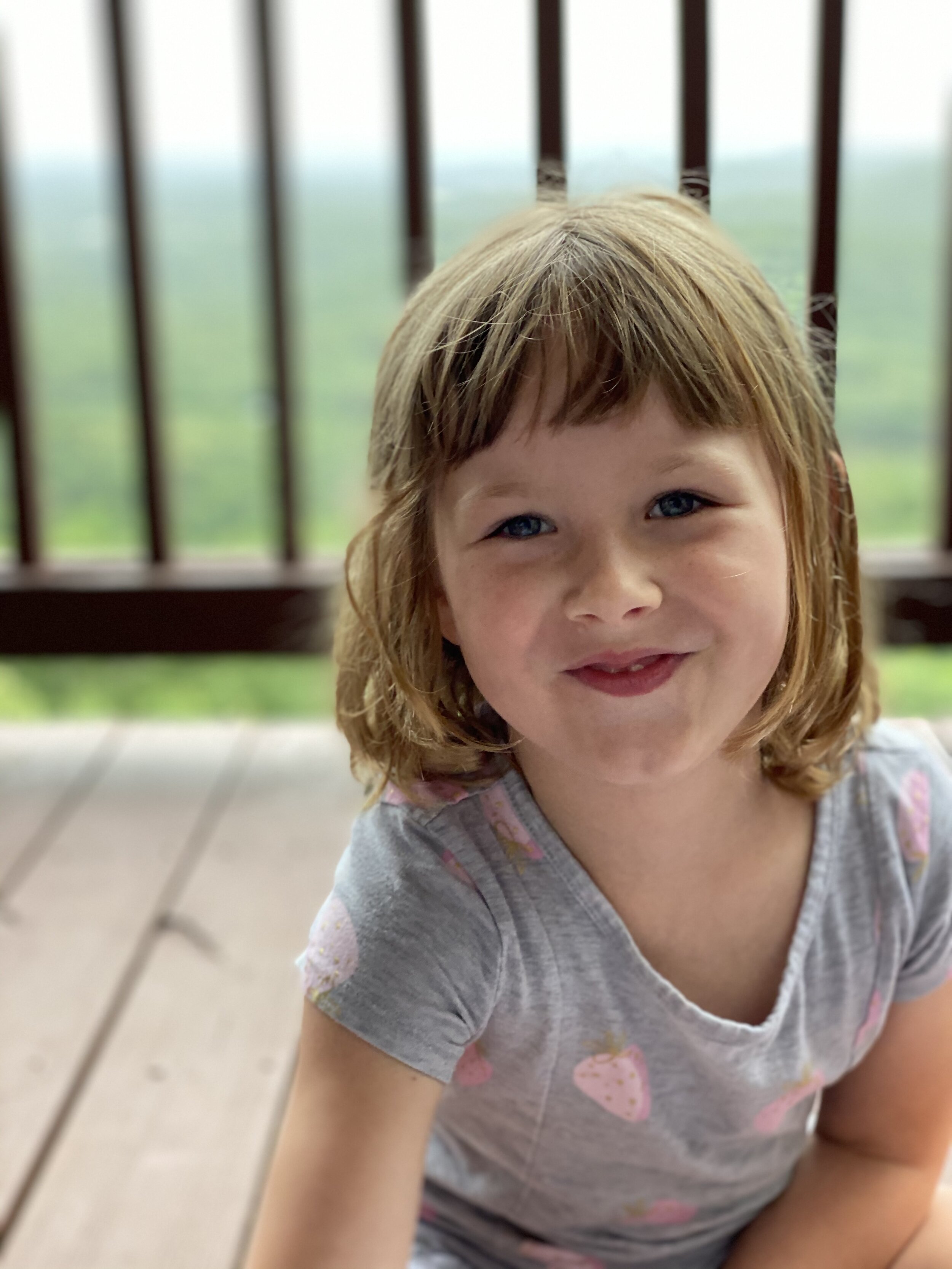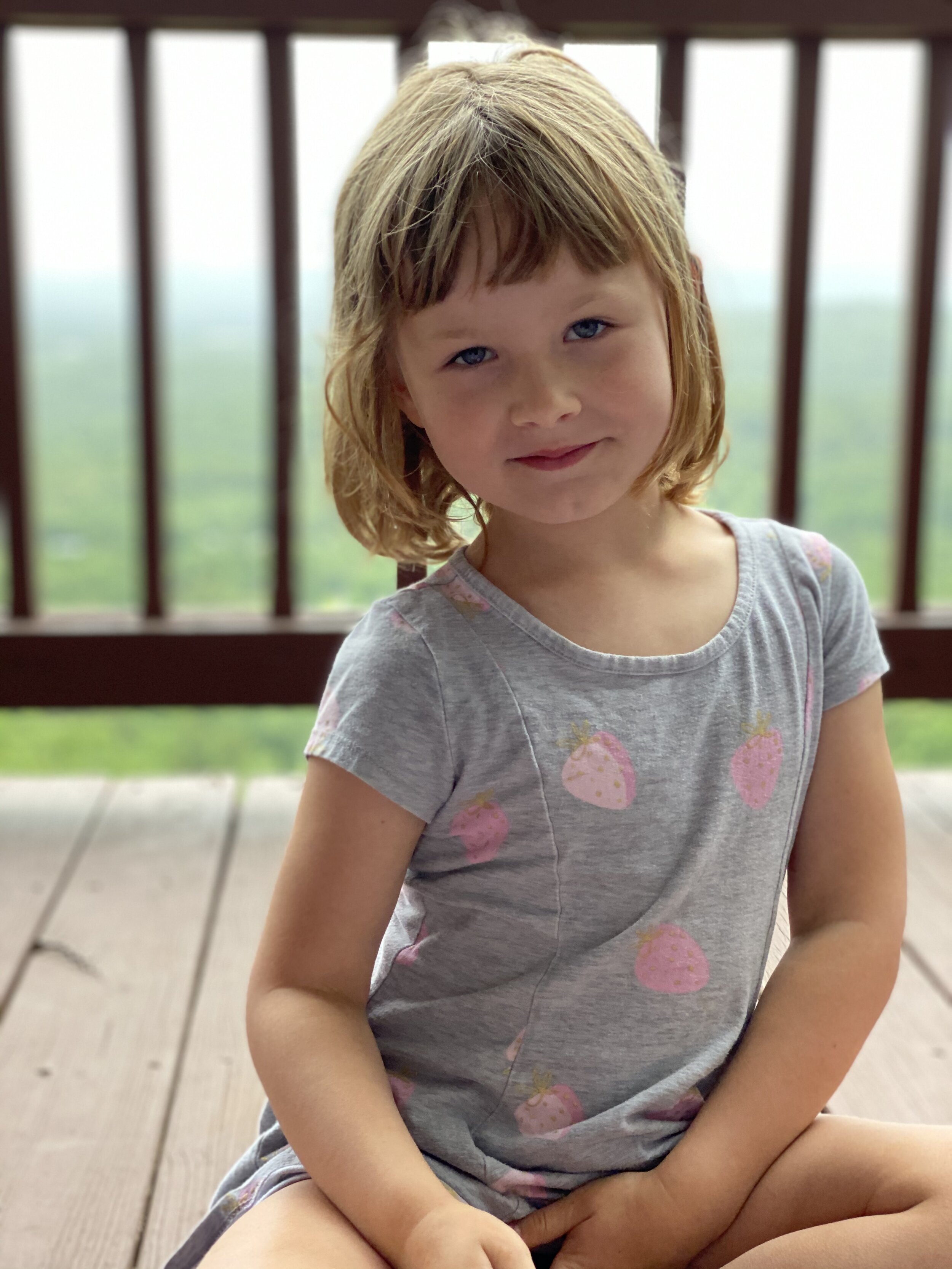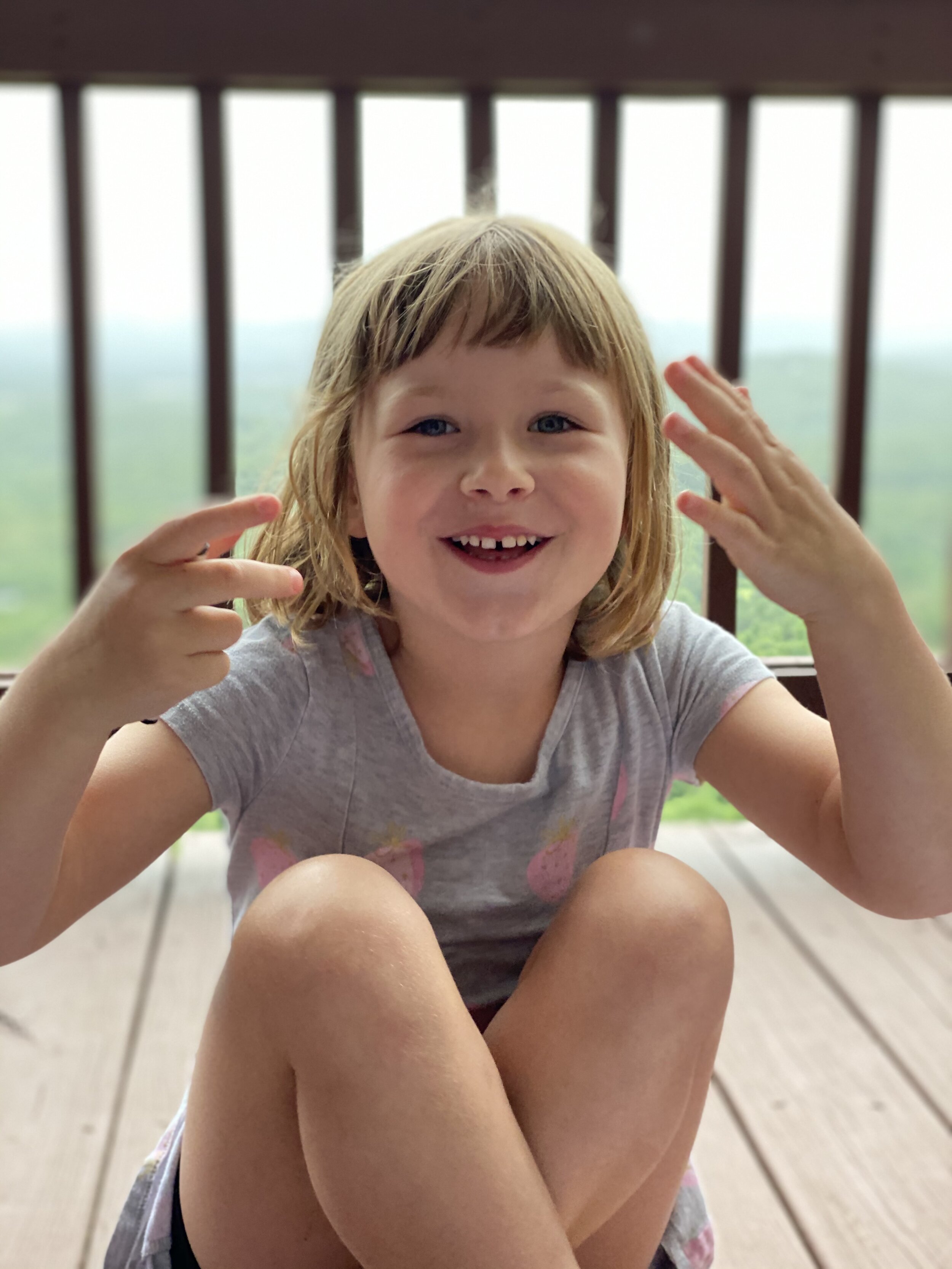A Childlike Faith
"Mom, I wish God didn't exist."
We were taking an evening walk around the neighborhood, dodging the thunderstorm that menaced on the radar forecast. My infant was strapped to my chest, and I pushed my worn out three-year-old in the stroller. My five-year-old walked on her own two feet, running and skipping, leaping and twirling, her legs long like a gazelle, her voice a constant stream of questions and commentary.
Suddenly the conversation took a serious turn. "When will the coronavirus be over?" she asked, pronouncing the still-new word carefully.
"Nobody knows, sweetie," I said, "but we're all wondering the same thing."
"Is it going to be over soon?" her sister asked.
"No, I don't think it will be over any time soon. Partly that's because some some people are not wearing masks like they should. And partly that's because it's just a mean, new virus that is hard to get rid of."
My big girl seemed to contemplate this. Then she said, "I hate the coronavirus."
"Yeah," I responded, laughing. "Me too, sweetie. Me too."
"But God is in control," she added, knowingly.
"That's right! God is in control of everything, even if it doesn't make much sense to us."
Her brow furrowed in thought, and then she said with some vehemence, "I wish God didn't exist."
My mouth started to fall open, but I clamped it shut. "What did you say?” I asked. "Did you say, 'I wish God didn't exist'?"
"Yes," she said carefully, sensing from my tone that she had said something significant.
We were embarking, I realized, upon an extremely important conversation, one that had the potential to impact her childlike faith in ways that could reverberate for decades. My response would teach her something profound about God and the nature of our relationship with him. It would be easy to panic, wondering, what has she learned about God to make her say this? Is her heart hardened already?
It could be tempting to admonish her: "Oh! Don't say that! God loves us!" Or to jump straight to a correction: "God works all things for good! God takes care of us!" It would be easy to think about what her good, Christian teachers might think if they heard her, or the well-meaning ladies at church, or the parents of her friends and classmates: this is not something we say! To some, it might register as blasphemy.
I took a deep breath. "Huh," I said as neutrally as I could. "What makes you say that?"
"It's just so annoying that he's in charge of everything!" she said, a note of exasperation in her little voice, her hands gesturing for emphasis.
"Wow, yeah," I said carefully. "I feel that way sometimes too. I think a lot of people do." I paused to let this statement settle—no “buts,” no shame, just letting it be ok for her to feel that way and to tell me about it.
After a few yards in silence, I continued. "You know, God is kind of like our parents. It can be really annoying that they tell us what to do and say 'no' and make the rules. And it might sound fun for them to be gone, because then we could do whatever we want, right?" She nodded. "But pretty soon, we would start to feel hungry, and lonely, and scared." Her eyes widened, looking up at mine. "And we would want them back."
She nodded again. I put a hand on her shoulder and smiled at her.
She smiled back. And then the moment was past. She commented on some flowers and danced around the cracks in the pavement. We finished our walk and successfully avoided the rain, the dark clouds moving fast overhead.
Later, as she and her sister munched on hotdogs and carrots (dinner of champions) and we talked about the day, I shared this conversation with her dad, and she clarified that she had said that because she thought that God caused the pandemic, that he caused the frustrating limitations that had ruled our lives for the past four months, keeping her from being able to see her friends, to go inside other people’s homes, to see her grandmother at times, to go to a playground. A god who caused those things, her thinking went, was not one she wanted around.
Her dad responded that he didn’t think that God caused bad things to happen to us, but he left the question of theodicy there. She’s only five, after all. The problem of evil could wait at least another year or two.
The girls finished their dinner and ran outside to suck on fluorescent popsicles, laughing and squealing. We read them some stories and got them to bed with only minor meltdowns along the way.
In the quiet that followed, I sat and reflected, watching the golden light of evening filter through the trees. Though this conversation felt monumental to me, she probably won't remember it a month from now. And that's ok. In fact, that's perfect. This should be one that is utterly unremarkable.
Because frustration with God is totally, completely normal, especially in times like these. Feeling angry at God is nothing to be afraid of. Questioning his plan, his goodness, is nothing to be ashamed of. Rather, these will be, for most of us, familiar parts of our spiritual journeys, healthy aspects of any deep, honest relationship.
Instead of evoking apprehension, hearing this kind of comment from our children should signal to us that they are taking their relationship with him seriously, that they’re thinking deeply about these holy mysteries that have confounded theologians for centuries.
God is in control. God loves us and cares for us. Truly awful things happen all the time, even to good people.
This makes no sense.
Yes, brilliant thinkers over the centuries have offered complex arguments to explain this paradox, some of which I find quite convincing. But even so, in the lived experience of it, it doesn’t add up. And when really bad things happen—abuse, famine, disease, murder, genocide—we just feel really, really angry. No theological argument is going to help in those moments.
But, like a good parent, God is there to hear our frustrations, our fears, our confusion and anger. He's not afraid of them. And neither should we be.








